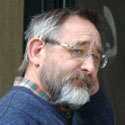Advisory Board and Editors Ecology

Ylenia Carotenuto
Dr. Ylenia Carotenuto is a Researcher within the Department of Integrative Marine Ecology, Stazione Zoologica Anton Dohrn, Italy.
Her research interests focus on Plankton Chemical Ecology, Molecular Ecology and Next Generation Sequencing.

Dee A Carter
Professor in Microbiology, School of Life and Environmental Sciences, University of Sydney, Australia. Member of the Marie Bashir Institute, University of Sydney. Professional Member of the Australian Society for Microbiology and Fellow of the American Academy of Microbiology.

Karen Chan
Assistant Professor, Biology Department, Swarthmore College. Adjunct Assistant Professor, Division of Life Science, The Hong Kong University of Science and Technology.

Simon Man Kit Cheung
Dr. Cheung is a Senior Research Associate of the School of Earth Sciences at the University of Bristol. He is a microbial ecologist specialized in using molecular and bioinformatics techniques to examine the dynamics, determinants and roles of microbial communities in natural and host-associated environments.

Jean Clobert
Senior Researcher (DR hc, CNRS), Station de Ecologie Experimentale du CNRS à Moulis. Member of the Acamedia Europaea.
After having developed statistical methods for the study of population dynamics in nature, my research focus has shifted since 15 years towards the study of three main topic :
* The study of dispersal evolution (causes, mechanisms and consequences). The approaches which have been developed are demographic, physiological, behavioural and genetic. Three model systems have been chosen to study the genetic and plastic responses of dispersal to variations in the environment, two lizards species, the common lizard (Lacerta vivipara, coll M. Massot) and the side blotched lizard (Uta stansburiana.coll B. Sinervo), and a ciliate (Tetrahymena thermophila).
* The study of trade offs and phenotypic plasticity. I have been interested by the link between predation/parasitism and clutch size or/other traits evolution. I alm also interested by the evolution, control and organisation of trade-offs, in particular with respect to phenotypic plasticity.
* Population structure and extinction rate. We examine the role of the different sources of heterogeneity (demographic environmental) and in particular internal (mating system, polymorphism, type of competition) in population viability.

Sheila R Colla
Assistant Professor in the Faculty of Environmental Studies at York University.
Teaching and Research subjects include protected areas management, species at-risk, ecology, environmental management.

Ben Colman
Associate Professor of Aquatic Ecosystem Ecology at the University of Montana.
I am broadly interested in how nutrients and energy are cycled in aquatic and terrestrial ecosystems. I combine elements of ecosystem ecology, microbial ecology, and biogeochemistry in my research.

Jonathan F. Colville
I am interested in the distribution and diversity patterns of insects and the reasons underlying observed patterns. I study both point diversity and compositional differences in insect and plant community patterns and relate these to ecological and evolutionary processes. I am also interested in the evolution of exaggerated traits in insects, such as those traits associated with sexual selection. The functional morphology of insect mouthparts, particularly of insect pollinators, are a further area of interest, as is the systematics and taxonomy of beetles (Scarabaeidae).

Erik E Cordes
Dr. Erik Cordes is a Professor and the Vice Chair of Biology at Temple University. He has worked on the ecology of deep-sea corals and hydrocarbon seeps for over 20 years. He studies these ecosystems at all levels of organization, from energy flow in ecosystems and patterns of community assembly, down to gene expression and microbial processes. Dr. Cordes worked on deep-sea corals for his Master’s thesis at Moss Landing Marine Labs, worked on cold-seep ecology for his Ph.D. at Penn State University, and studied the microbial communities within hydrothermal vent chimneys during his NSF Post-Doctoral Fellowship at Harvard. At Temple, his lab has continued to explore the deep Gulf of Mexico while working on the effects of the Deepwater Horizon oil spill on deep-sea coral communities and the effects of ocean acidification on the reef-forming deep-sea coral Lophelia pertusa. Ongoing investigations in the Cordes lab include the seeps and corals off the Pacific coast of Costa Rica, the deep-sea corals of the Phoenix Islands, and the various deepwater habitats of the Atlantic coast of the US.

Guilherme N Corte
Dr. Guilherme Corte is a Professor (Assistant) at the Texas A&M University College of Marine Sciences and Maritime Studies, USA. His research explores the ecology and conservation of coastal marine ecosystems, focusing on the structure of marine benthic communities, the functioning of coastal ecosystems, and the reproduction and population dynamics of marine species.

Mariano A Coscarella
Dr. Mariano Coscarella is a Senior Researcher at the National Council of Research of Argentina and Professor of Conservation Ecology at the Universidad Nacional de la Patagonia San Juan Bosco.
His skills and expertise include Conservation Biology, Fish Ecology, Marine Ecology, Conservation, Marine Mammals, Wildlife Conservation, Behavioral Ecology, Animal Behavior, Wildlife Ecology and Wildlife Biology.

Dimitri de Araujo Costa
Dr. Dimitri Costa is a Biologist, PhD Researcher (Permanent Professor) of Núcleo de Ecologia Aquática e Pesca da Amazônia (NEAP).
He is also affiliated with the following:.
Post-Graduate Programme in Aquatic Ecology and Fisheries (PPGEAP), Federal University of Pará (UFPA), Belém, Pará, Brazil.
GIBI - Group for Integrated Biological Investigation, Centre for Advanced Biodiversity Studies (CEABio).
Researcher at the CIIMAR - Interdisciplinary Centre of Marine and Environmental Research, University of Porto, Portugal
More information about Dr Costa's professional background can be found here:
http://lattes.cnpq.br/7509693462303861
https://orcid.org/0000-0002-5399-2483

